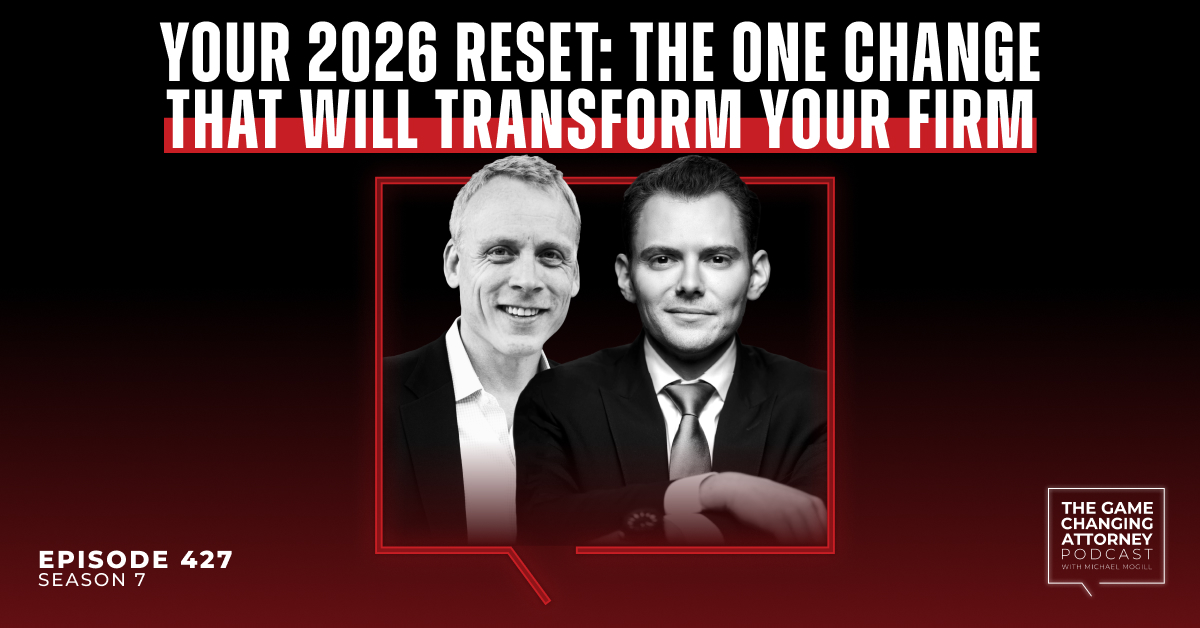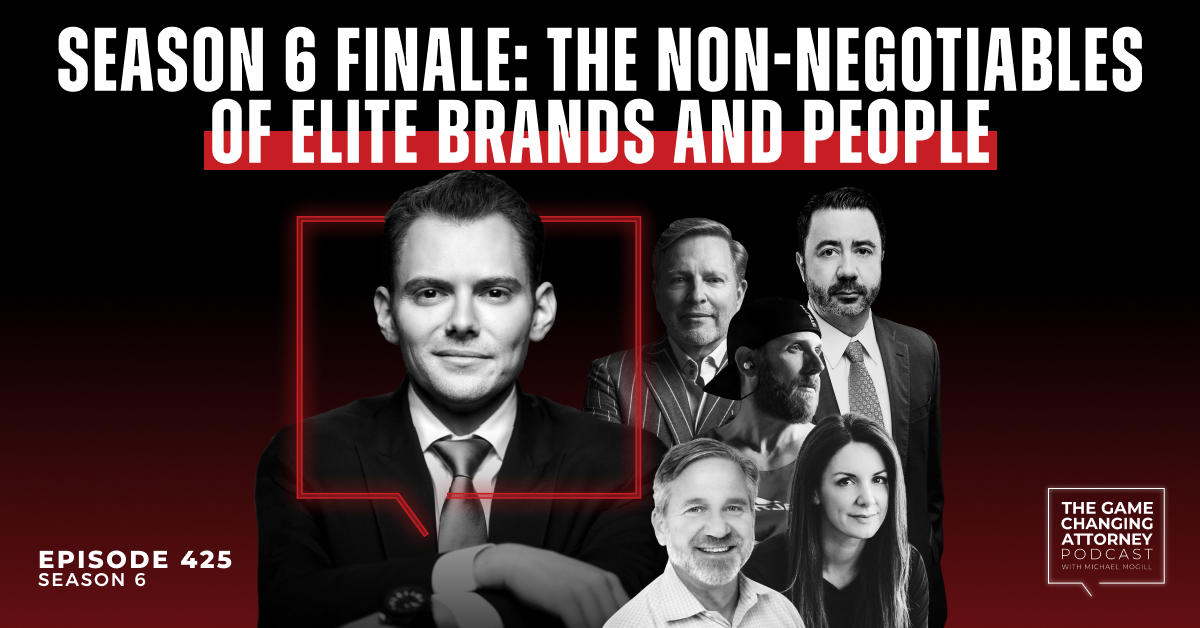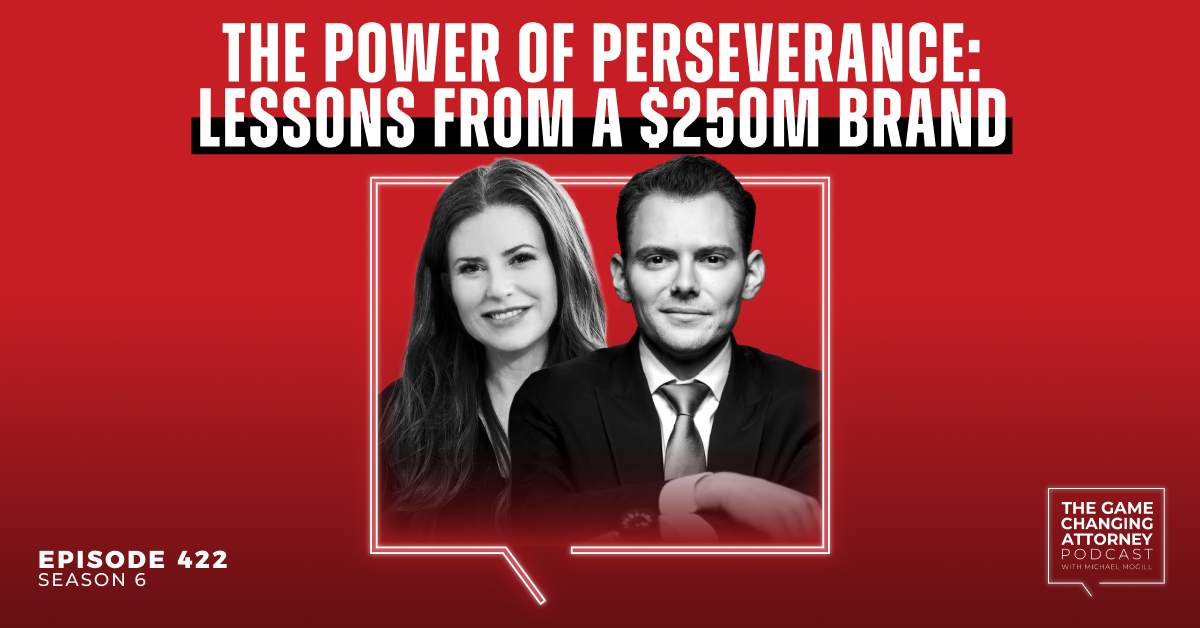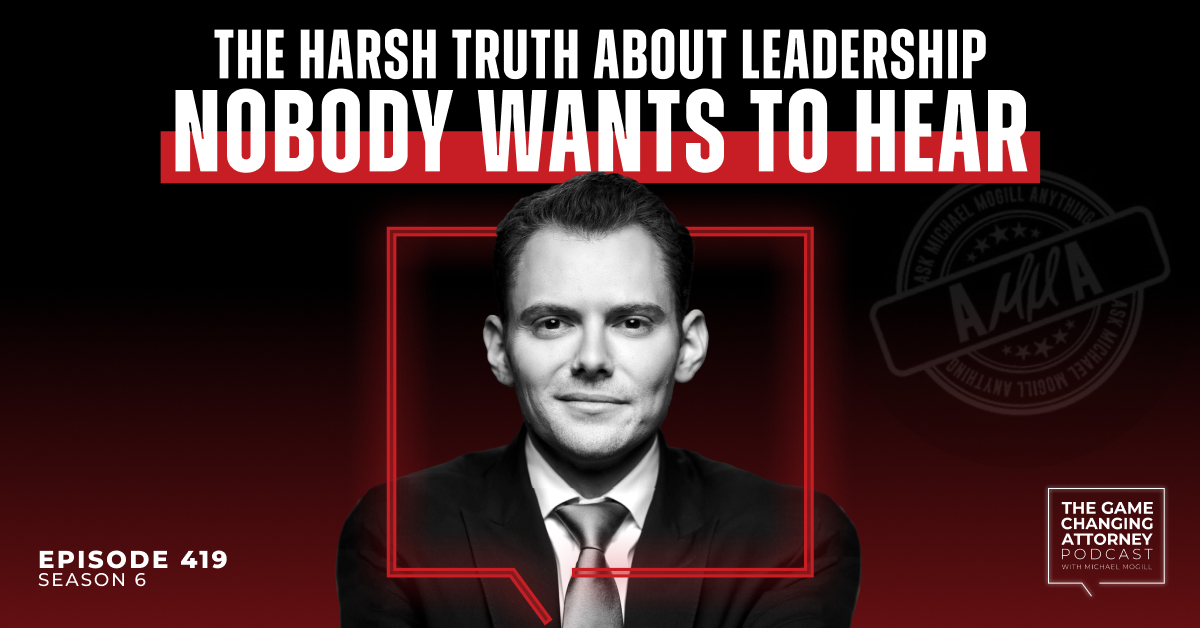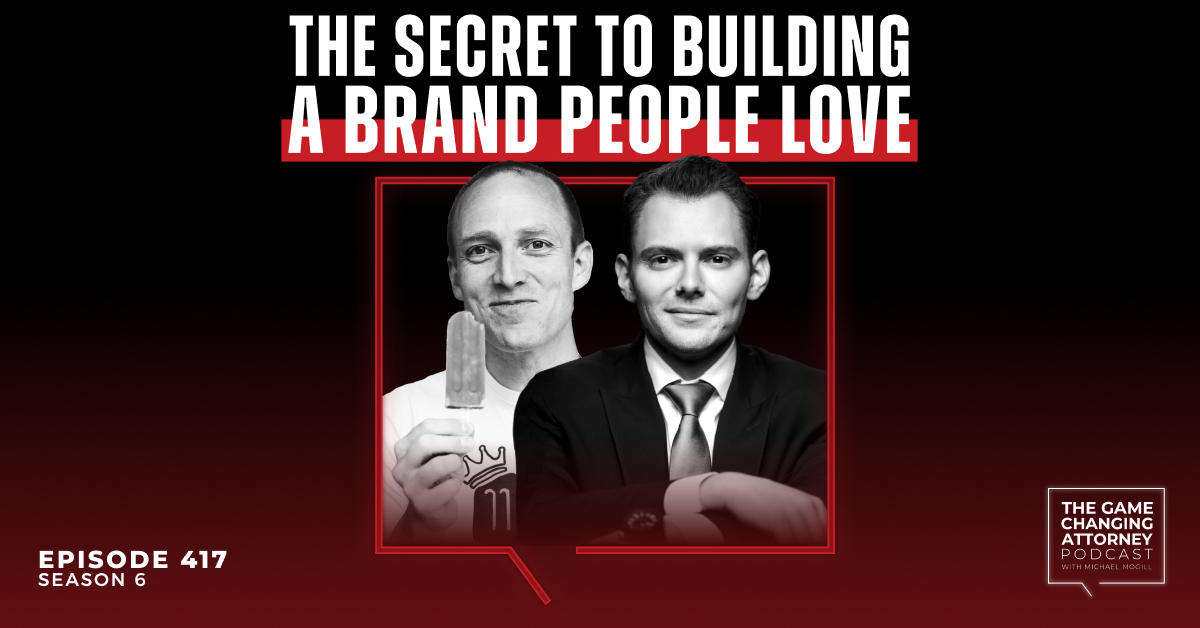

Episode 292 — AMMA — A Leader’s Battle Against Complacency
If you’re a leader, you will inevitably deal with people.
If you deal with people, you will inevitably deal with the drama, baggage, and frustrating challenges that come with human behavior.
But if you’re committed to the growth and success of your organization, you will need to develop swift strategies to address complacency and other sources of toxicity on your team.
In this episode of The Game Changing Attorney Podcast, Michael Mogill has got you covered.
Don’t miss this no-nonsense, real-world conversation around:
- The real reasons that toxic cultures exist
- Why you endorse what you tolerate from your team
- How to know when it’s time to part ways with disengaged employees
Listen & Subscribe
Show Notes:
Entitlement prevention. “There’s nothing quite like when you have someone who’s been with you a long time, and they’re a great leader, and they’ve been doing great work¸— and then it all goes to their head and they develop a little bit of an ego. They start to act entitled. They start to act superior. That’s not good for business because that’s not very leaderly. What happened to the humility? What happened to being a servant leader and being vested in the success of others? But I’ll give you a foolproof solution to solve this problem immediately, and it’s actually probably not what you think. In my experience, if you want to neutralize this threat — because a lot of times the reason why somebody gets a big head and the reason why they get that ego is because life becomes a little too easy for them; they start going through the motions; they believe they’ve been kicking ass and they’ll continue to kick ass every single day — so the best thing you can do as the boss of the leaders, is that you simply give this person a new challenge. You can assign them to a new project or a new initiative. You have to challenge them to put them in a position where they’re uncomfortable yet again, because the reason they’re probably acting this way is because when’s the last time that they were uncomfortable or that they were challenged? By doing so they will be humbled. They cannot act entitled and superior when they themselves are having to gain new skills and new capabilities and having to learn something new and solve a new difficult problem.”
How to address problem behaviors. “If somebody is misbehaving and disregarding directives, this isn’t an entitlement issue. This is an issue with somebody not aligning with the values of the firm, and if you are allowing this to continue, then you are saying that’s okay. There’s the expression you say all the time, Jessica. ‘You endorse what you tolerate.’ If this is acceptable to you, then you will allow it to continue, and if it’s unacceptable to you, then you’re going to put a stop to it immediately…You have to make it very clear to this individual the difference between what is acceptable and what is not acceptable, and you have to align on that. There are really two options. You can keep endorsing it or you eliminate it. We say, ‘What is your plan for getting on board? Stay in joy or leave in peace. Those are your two options.’ It’s either get on board with the program, or let’s help you transition out.”
Investigate before you terminate. “In these types of scenarios, I wouldn’t jump to any conclusions, and I wouldn’t assume anything. I think it’s important to sit down with this person and figure out what’s going on, because a lot of times, if they were very consistent for a long period before this and they start to act in erratic ways (like they’re showing up late or missing deadlines), in my experience, sometimes there are things going on personally and you don’t know what’s going on. Maybe they’re going through a divorce. Maybe they’re struggling with something else. Maybe they have a family member who’s facing a tough health condition right now. You don’t know, and I think it’s important to lead with empathy and first figure out, ‘Hey, I noticed that, you know, normally you’re super consistent. You’ve been super on point, but lately I see that you’re arriving late. You’re starting to miss some deadlines. I know that’s not characteristic of you. How can I better support you? What’s going on?’ And sometimes these people will say, ‘Nothing, I’m all good.’ To that I’d say, ‘That’s interesting. I was hoping that something was wrong because obviously this behavior is unacceptable. That would actually explain something, but the fact that you’re all good means that you’re either not open to sharing with me, and I can’t help you. Or you’re just checked out.'”
RESOURCES & REFERENCES
- Bad Boys (TV show)
- ChatGPT
- John Morgan
Connect with Michael
- Text directly at 404-531-7691
